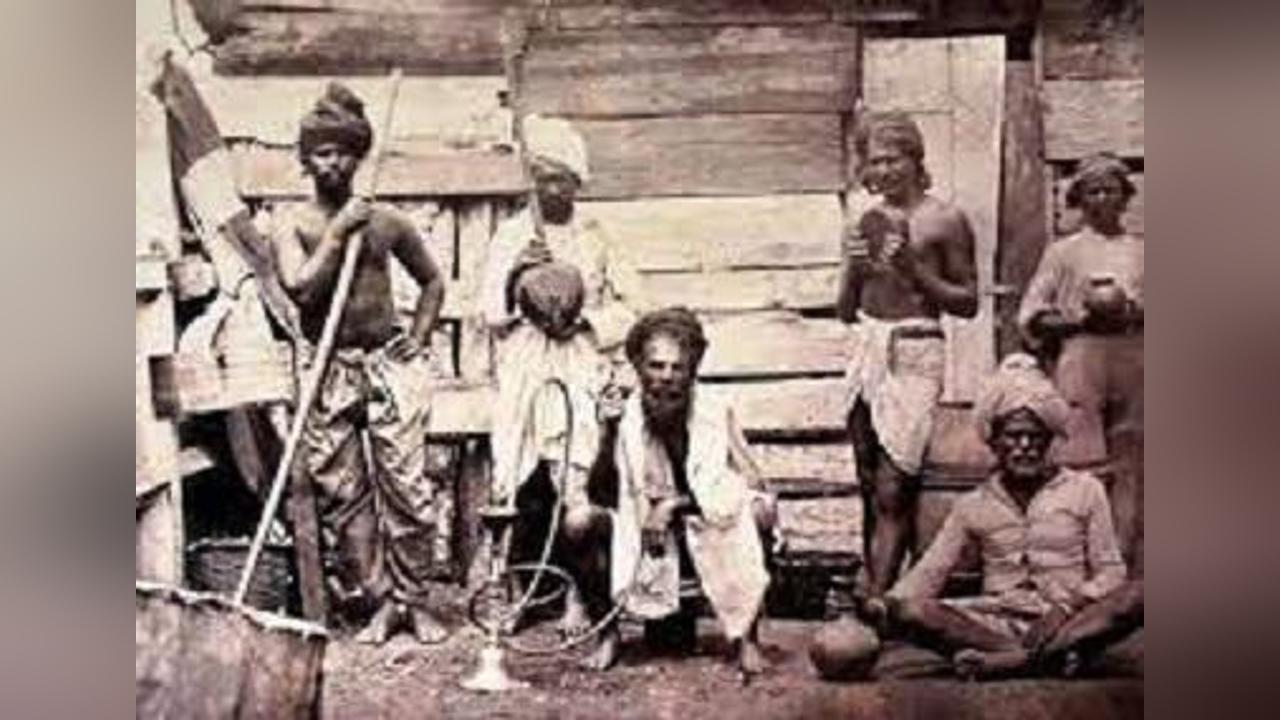Africa-Press – Mauritius. As the appalling news of the sepoy revolt broke in Mauritius on 13 July 1857, an air of panic seemed to have seized the inhabitants. Fearing a scarcity of household commodities, mainly those products imported from India, the inhabitants rushed to procure as much supplies as they could.
This feverish rush as if the island was ?menaced by famine? led to price hikes within hours. But it was not so much the worry of a shortage of essential products or the sudden price rises that took hold of the people.
Rather, it was the fear of a rebellion by the Indian labourers encouraged by the mutinous spirit prevailing in India that seemed to have pre-occupied the minds of the general population. What further compounded that fear was the decision of the government to introduce compulsory education in Mauritius in 1857.
As was pointed out in July 1857 in the local newspapers, compulsory education could well be resented by the Indians and could also serve as an explosive to ferment troubles like the unwanted greased cartridges which caused the eruption of the unprecedented uprising in India.
The Governor, Sir James Macaulay Higginson was advised to be on his guard and to quash his decision of imposing compulsory education. But the advice went unheeded.
Yet, like those who are used to seeing the midnight ghosts, our local press in 1857 kept seeing signs of rebellion everywhere. It was argued that with so many Indian immigrants in the island, Mauritius looked like one of those provinces of India.
With an atmosphere vitiated with fear, Sir James was left with no choice than to issue a minute setting all fears at rest and at the same time paying a glowing tribute to the ?loyalty and pacific disposition? of the Indian labourers.
The Governor, Sir James Macaulay Higginson, was advised to be on his guard and to quash his decision of imposing compulsory education. But the advice went unheeded.
The arrival of the ?Pottinger? despatched in all haste to Mauritius from Bombay on 19 July to collect the 33rd Regiment of the troops based at Mauritius and the H. M Simoon? taking on board the 5th Fusiliers bound for Calcutta all gave a clue in Mauritius to the intensity of the uprising in India.
In fact, the Governor-General of India, Lord Canning was assured by the Secretary of state, Lord Elgin, who was on his way to China, that troops stationed at British colonies in the region would be requisitioned and hurriedly sent to India to support the British army in crushing down the rebellion before it affected the southern and western parts of India.
It was the use of force as Canning said that was needed to regain control of the situation in India. The island being deprived of its troops, Le Mauricien in its issue of 20 July 1857 wrote that although this ?patriotic? move was intended to save the British empire from collapsing, the Governor ought to have considered the formation of a ?milice? constituted of the Creole inhabitants in order to safeguard peace and tranquility.
As if the Indian population was regarded as a symbol of mistrust, the paper wrote, ?N?oublions pas de qui est composé notre population, et n?attendons pas que le danger soit arrivé pour le combattre?? In another note, Le Mauricien referred to the Indian immigrants as consisting of ?thugs?, that is, ?criminals, brutal persons in India? and that members of general population in Mauritius were ready ? à lever l?étendard de la guerre Sainte,? if ever the island was exposed to any danger.
On nous accusera peut-être de terrorisme,? stated the article but Le Mauricien hardly cared a hoot about whatever was said and urged its readers to write a petition to Sir James Higginson demanding that the government ?confie la garde du pays à l?honneur Créole?? But Sir James Higginson found there were no grounds for entertaining any fear although the troops had gone out.
I confess,? wrote the Governor in his minute giving comfort to the inhabitants, ?I am at a loss to discover on what grounds the apprehension rests.
Nor can I understand the common purpose, or what possible ties of interest or of sympathy can exist between the poor low-castes coolies who come to till our soil and earn their bread, with the fanatical haughty Mohammedan, the wily Brahmin or the fearless high-spirited Rajpoot of whom the Bengal Army is almost entirely composed of?.
The causes of the revolt, whatever they were, could not find a place in Mauritius, according to the Governor.
The Indian labourers, he said, did not even have the means of aggression and could not stand up against the smallest number of well-armed and disciplined soldiers in case they wanted to rise up in revolt.
Have the coolies by conduct or demeanour, ever exhibited symptoms to induce belief of an aggression? No.
wrote Sir James who added that the Indians ?have been throughout remarkable for submission to the authority of their masters and to unhesitating obedience to the civil power.
? In concluding his minute, the Governor asked whether ?employers are warranted in encouraging such imaginary fears? and urged that ?special care is taken to avoid any measure indicative of suspicion or distrust of the loyalty and pacific disposition of the Indian population.
While the element of fear was filling the minds of the Creole inhabitants, the Governor of Reunion, Hubert Delisle sent a letter to Sir James proposing the despatch of a French garrison to subdue any revolt triggered by the Indians in Mauritius.
Should you perceive,? wrote the Governor of Reunion, ?any symptom of revolt, if the Indian population of your island should become excited by their co-religionists of the peninsula, I would propose to place under your command a part of the garrison of Reunion.
You have only to make a signal and the French troops shall be under your orders?? When the letter of the French Governor was received, Sir James was on his way to England.
The acting Governor of Mauritius, Major-General Hay wrote to thank Hubert Delisle for his ?noble offer? of assistance. ?I have carefully watched the current of events and feelings here,? added the acting Governor of Mauritius, ?I entertain no apprehension of a rising.
Major- General Hay was all praise for the exemplary conduct of the Indian population of Mauritius and ended his letter by saying that ?this colony is in prosperous condition, and I have perfect confidence in the loyalty and gallant spirit of the inhabitants??
For More News And Analysis About Mauritius Follow Africa-Press







